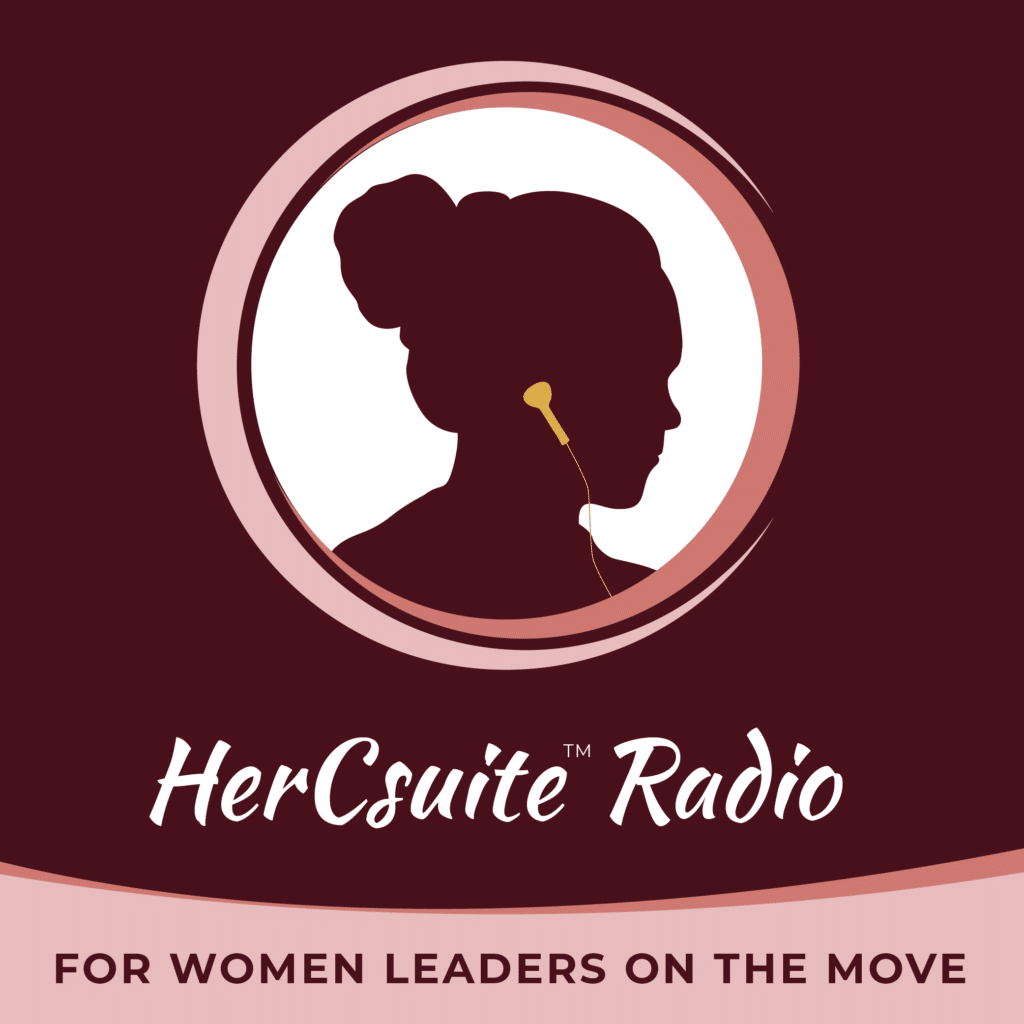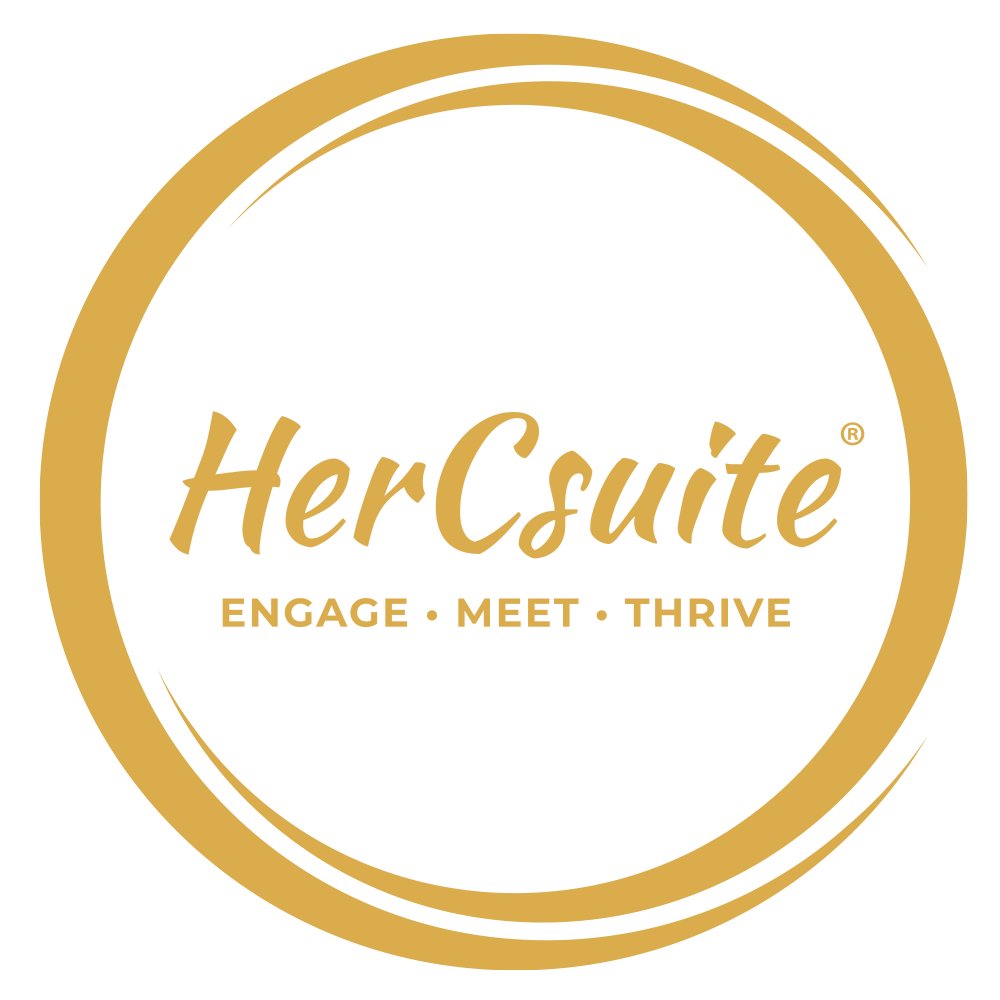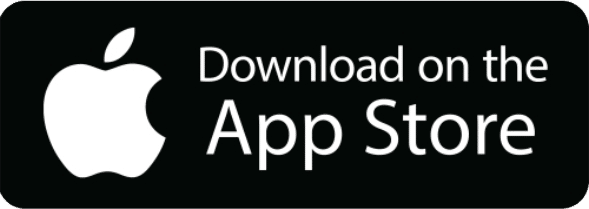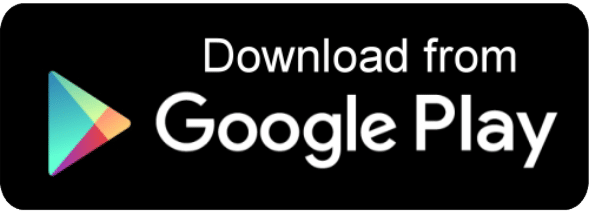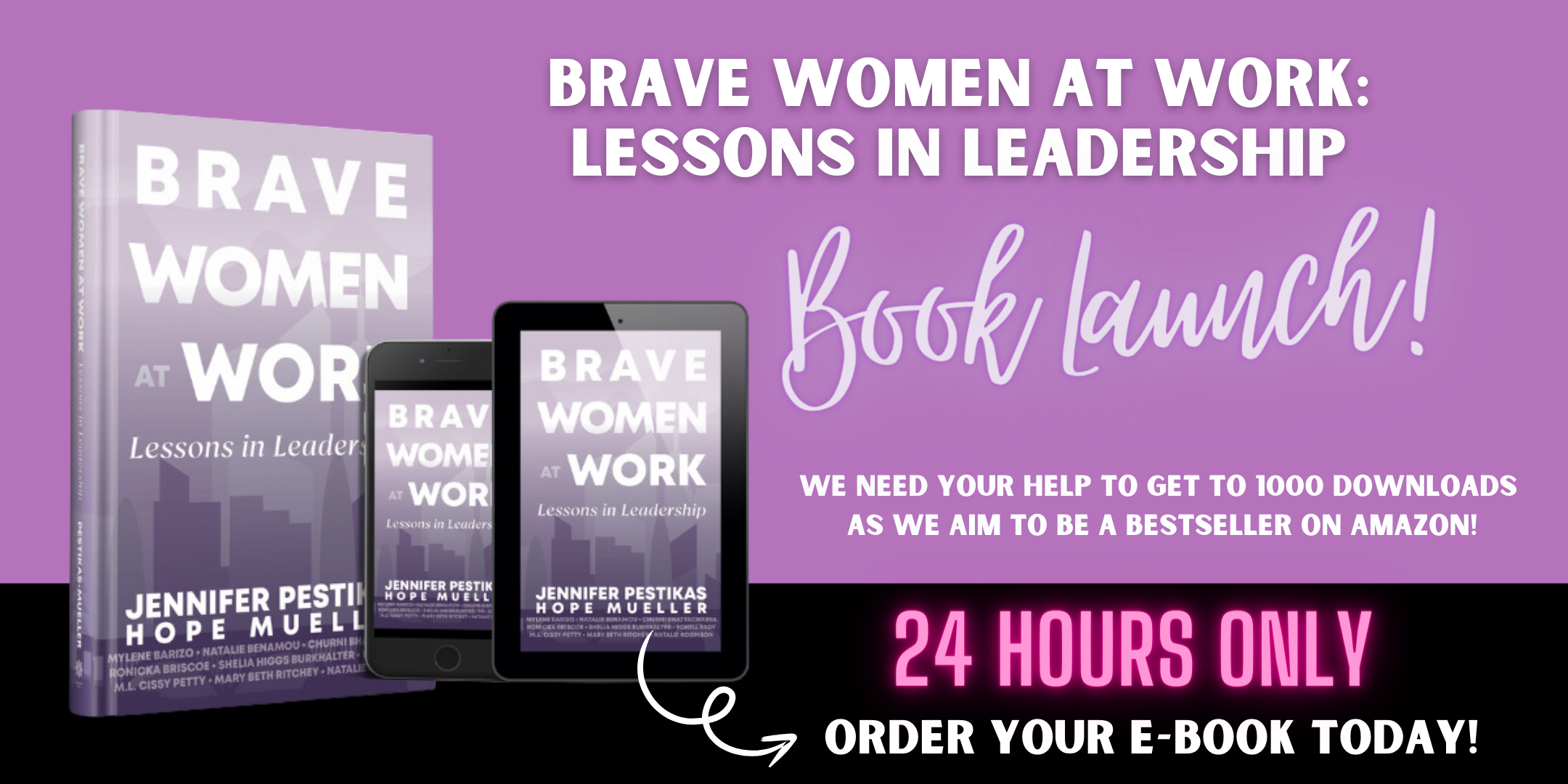Creating Inclusive Organizations Through Effective Leadership And Culture With Gena Cox, Ph.D.
There are many conversations about Diversity, Equity and Inclusion and this discussion takes an authentic look at the actions leaders need to take to create meaningful change. This episode’s guest has the answer to how we can achieve this: effective leadership and culture. In this interview, Gena Cox, Ph.D. shares in depth how to be open and transparent from “the top of the house”. What we can all do to create more inclusive workplaces.
She describes her research for her best-selling book, Leading Inclusion and dives deep into the findings and the her discovery of the C’s leaders need to understand to create inclusive organizations. Follow along to this great conversation and learn more about elevating the human experience in the workplace.
The R.E.D.I Model: Respect – Equity – Diversity – Inclusion
Dr. Cox talks about the survey she created with 500 people, and what it she found was truly getting in the way of inclusion. She asked the question:
“What is it you would like your leaders to know differently?” She heard over and over that in order to achieve real change, outcomes have to start by delivering Respect first to have an inclusive culture.
The 3 C's:
If you are a leader, you have an obligation to lead the employee. Try using these three components:
- Curiosity-Leaders must know something about the people they lead.
- Connection-People are looking to have meaningful human interactions.
- Comfort-Everyone wishes they could get past the conversation and feel comfortable.
This interview happened immediately following a HerCsuite™ DEI Cross Organization Council meeting. Every month, the council gets together and has an outside speaker like Dr. Cox, followed by peer-to-peer conversations and networking. Our speakers are part of HerCsuite™ and members have an opportunity to connect inside our network community.
Resources:
HerCsuite™ DEI Council Handout
HerCsuite™ Radio is sponsored by our Turnkey Speaker Programs. Find out about our Women's History Month Program and Schedule a call to learn more.
HerCsuite™ Founder and Podcast Host Natalie Benamou can be found LinkedIn | HerCsuite™ LinkedIn | HerPower2 LinkedIn
Thank you, Gena Cox, Ph.D., for being a featured speaker for HerCsuite™, for being on the show and to you for listening to the show. Keep shining your light out, the world needs you. We would be honored if you subscribed and shared this episode with a friend or colleague today.
—
Show Transcript:
Dr. Cox, I'm so excited to welcome you to the show. Thank you so much for being on the show.
I am so excited to be here. I feel like Oprah.
We had an amazing time. People will not know that we had an amazing discussion with our DEI Cross Organization Program. Thank you for being there and talking about these important things. I'm so excited to have this conversation with you.
Likewise.
I've had the amazing benefit of getting to know you better by having some conversations as well as reading your book, but for our audience who may not know about you, I would love for you to share a little bit of the arc of your career and what's bringing us to this moment.
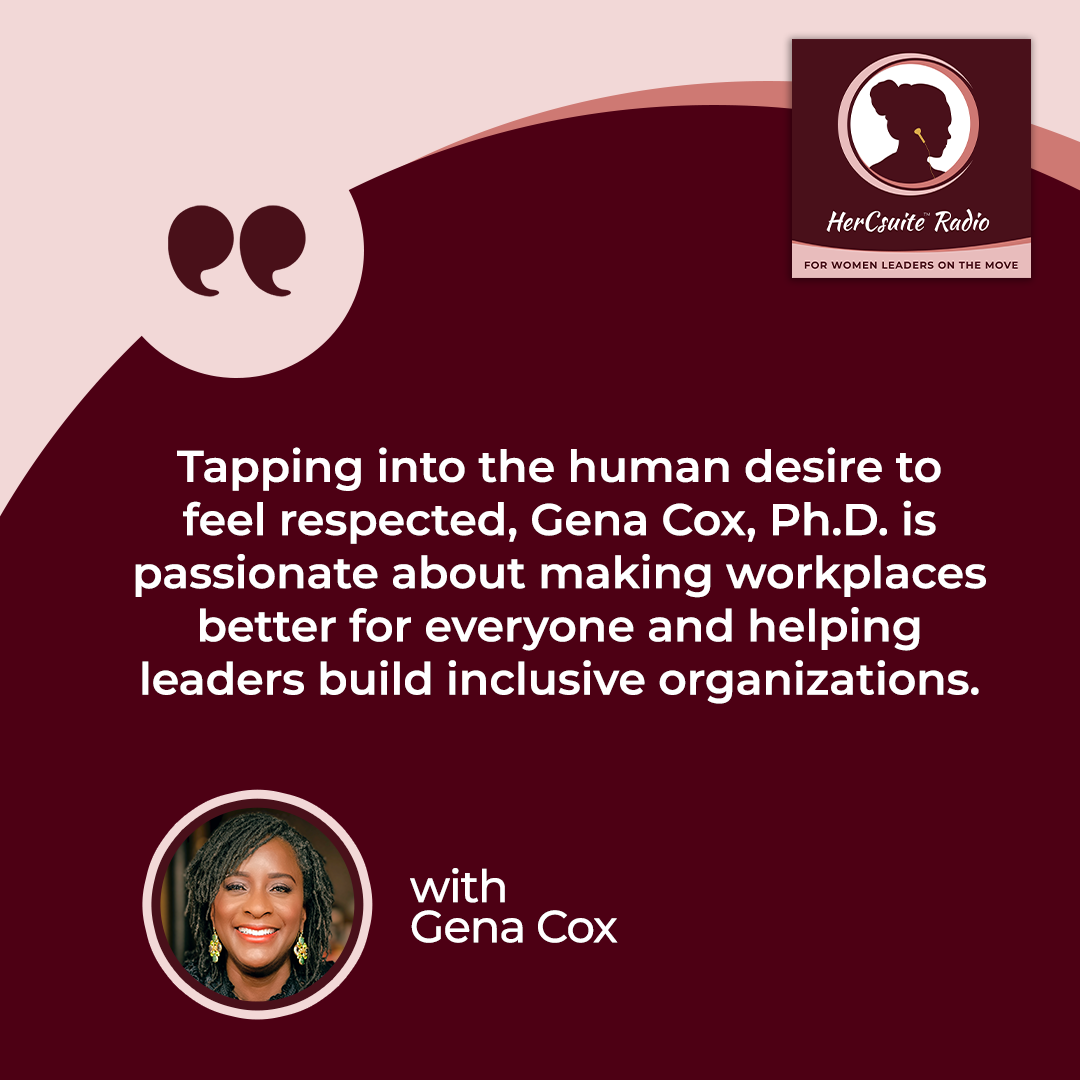
When I was growing up, I wanted to be a journalist. I fantasized about traveling all over the world and writing stories about things that were going on in the world. I'm a born observer, but I came to the United States when I was twenty years old and my dad said, “Don't study journalism because it's a very challenging career from a competition perspective. You don't even understand the culture of the country you're going into. Pick something else.”
I was lucky I picked Psychology. For decades, I have advised leaders about organizational culture, employee experience, leader impact, influence, and those sorts of things. For most of my professional career, I've been a bit of a fake, a fraud, and a phony in that I haven't always had the best experiences in American workplaces. I hate to say it, but many of the times when I wasn't having a good experience, it was because I could see that I was being treated differently than some other people, regardless of my performance. I don't think I was ever going to do anything about that in a bigger way because I concluded that's the way it is.
When George Floyd was killed in May of 2020, I said, “Gena, is there going to ever be a better time for you to say what you believe and help people who look like you and even people who don't look like you? Help leaders to understand what the experiences are of employees in their organizations that you recognize they don't understand.” I wrote a book, Leading Inclusion. I started to write it in the summer of 2020. It's an opportunity for me to give back and support this goal I have of making workplaces better for everyone.
Speaking of workplaces and being better for everyone, we talked about this a little bit in our program, but this episode is coming out during Black History Month, so it's appropriate that we are doing this right after Dr. Martin Luther King's birthday. You posted about workplace inclusion on LinkedIn. It's a great thing to think about when that inspired you for the book, and also for the timing of this interview. What are your thoughts about that and what made you decide to write that?
It was a very quick piece that I did. Every year around Martin Luther King's birthday, I don't want to be another person who hops on a bandwagon, grabs a quote, puts a picture of his quote, and says, “We're going to all support his vision,” and so on because we do know that. People are sincere even when they do that. My way of operating is I like to write something that someone can learn something from. If not, I don't want to write anything at all.
I thought I'd do a quick post about the circumstances around the killing of Martin Luther King in April of 1968. He died because of his desire to make workplaces better. He was in Memphis, Tennessee and he was there to support 1,300 sanitation workers who were striking and demanding things like equal pay, healthy working conditions, and basic things. Unfortunately, that was where he was killed. I tried to draw a line between Martin Luther King's legacy, not just as a social justice warrior and advocate for equal voting rights and so on, but clearly as a person that I called a labor humanist. He believed the same thing I believe, which is that leaders and organizations have got to put the human experience at the center of everything.
Leaders and organizations have got to put the human experience at the center of everything. Share on XThat was what that article was about. That is a lesson that applies all year long. You mentioned Black History Month and I'm going to let you know right off the bat that I have very mixed feelings about Black History Month or Women's History Month, Hispanic Heritage Month, Indigenous People's Day, or any of the other things that we tend to do. It is perhaps an evolution that one day we won't need any of these things. Let me be very clear, it's not like I don't think they have value and I'm not even saying we should eliminate them. That’s not what I’m saying. It's just they give me the heebie-jeebies because, in reality, every time we do this what we're saying is, “There's that particular day that we will talk about indigenous people, but the rest of the year, who cares?”
During Black History Month, we tend to put more people of African descent in forward-facing situations so we see more of them in the media and so on, but what do we do for the other eleven months? Why don't we talk about history then? I wanted to let you know that I feel like in these months and these points in time, they have value now. I hope that when my daughter is older or as my grandchildren come along, that maybe we won't even need to have them.
I agree with you. You said something during our conversation that struck me and I think about it a lot. It was an experience that you had in Tampa going to a fair and the realization about inclusion. If we don't have inclusion and you're not invited in or people don't realize they're invited in, or if it's an ERG and you have different ERGs, or even at an event and people might feel that they can't go to the event because they're not welcome, that resonated with me. What is your thought about that? What are things that we can do to focus on that inclusion piece?
I was telling this story in the context of we were having a conversation about ERGs. ERGs have a very high value and have done and will do a lot of positive things in organizations. Organizations will have to be careful as they established ERGs to be very clear about what is the strategic purpose and intent. Otherwise, what will happen is they'll find themselves in situations where all the ERGs do are people go into the ERGs and go off to their little identity groups where they're siloed, and then they're no longer thinking about the organization as a whole.
That then works to contradict the notion of inclusion. If I'm only talking to the people who look like me about the issue, how does someone who doesn't look like me ever understand the issue? Why would someone who doesn't look like me get involved with helping to solve the issue? There's that. I was telling this story about how I had gone to this local festival, which is a Black Heritage Festival, which is fine. It was a great festival. I thoroughly enjoyed it, but as I looked around the fairgrounds, I was like, “I see very few people of other races here.” When I was leaving, I noticed that outside the fence on the other side, there were all these nice restaurants. I saw a lot of White people in those restaurants that had not come to the festival.
I was having that moment where I was thinking, “Why is this?” I realized what it is. It's that perhaps those people who didn't come, not that they should come or have any requirement to come, my point is simply that they probably didn't think that this was a festival for them. They might not have thought they were welcome. This goes with all groups. I'm using this event as an example because there is a similarity to the concept of the ERG.
When you set up the ERG, be careful that not only the people inside the fence are getting their needs met, but that there are people outside the fence who understand that they can come to this festival too. You have to show them how they can get in. You have to show them how it could be that having them here is going to be advantageous to everybody, not just to the identity group that is in the ERG. That's one weakness of ERGs that will be the biggest challenge going forward.
When you set up the ERG, be careful that not only the people inside the fence are getting their needs met, but also those outside to understand that they can come too. Share on XIt's that inclusion piece. You're on the tightrope. You want to be inclusive of the people that were the reason behind the ERG. I used to do trade shows, and what comes to mind is a roadshow. It's taking the ERGs across the organization and making people aware of the goals of the ERG and the top of their minds, and then how can people become involved. Maybe they're not at the meetings or programs that are specific for them, but maybe there are some where people are coming together so that you break down some of that distance and barrier. What are your thoughts on that?
It's almost like you need to have a cross-ERG. These are people who are very interested in inclusion and want to make a positive difference. They don't want to be hemmed in by some identity characteristic that is the only criterion like race, gender, ethnicity, neurodiversity, or whatever. The reason that ERGs exist for these identity groups is because these are employees who are saying, “We have noticed that we haven't gotten all the benefits that everybody else in the company has gotten.” I’m not anti-ERG. I’ll be very clear about that. I just thought we have to be thoughtful about that. How do we get the people who want to help with this to feel like they can be a part of it even if they are not part of the identity group that we're talking about?
There are executive sponsors who are responsible for the budget and for that ERG aligning it to the business, and then there are leaders. You talk in your book about the importance of culture and leadership and not this focus on siloing DEI. Can you share about that? It is so timely and important for people to understand.
Since the book has come out, my ideas have been getting crispier on this issue because it’s very clear to me. I don't believe there is such a thing as diversity, equity, and inclusion. Those words, diversity, equity, and inclusion mean something, and there are outcomes that can be measured. What we're trying to get at when we talk about these issues is we're talking about effective leadership and healthy work cultures. That's all we're talking about. 


An organization needs to be able to answer these questions. Are your leaders effective for everybody? Is your organizational culture healthy for everybody? Is it a culture in which everybody can thrive? If you either don't know the answer to those questions and haven't thought about it, or you know the answer to those questions because you've been doing a survey every year, but you're not doing anything about it, what you're basically doing is what I call failing to be a designated head or leader. You are not thinking about the 100%. You're only effective as a leader for a portion of your workforce, which doesn't make sense.
If you were running a marketing campaign or you were doing something on the side where you had to sell something, you would not say that it was sufficient for you to only understand 85% of your employees and the other 15% was like, “Whatever.” You might do that in that group. Maybe you're in a business where you're only interested in the people who are at the very top, and there are some businesses like that. In most businesses, we want all of our potential customers and all of our current customers to be understood. We want them to have a good customer experience.
When it comes to employees, we missed that point. Not only are you missing this opportunity to be effective writ large, but that 20% or whatever that percentage is, you're missing the opportunity to get their ideas, innovations, and all the other things that can support your strategic objectives. It would be like saying, “I'm going to buy 500 pounds of flour to make whatever it is that we make in our business, but I'm going to take 20% and stick it over there. I'm not even going to bother to use it. I'm going to miss the opportunity to make even more of the thing that I can make or make it even better by not doing anything with that 20%.” You'd never do that.
One of the things that you talk about too is being curious to understand what employees are looking for. You have your three Cs, starting with curiosity. It is so important to be able to take that 20% of the flour and be curious about what I can make with it. What ingredients can I add to it to make it better than anything? What are those three Cs and why is it so important that leaders use that technique to understand their people more than just the survey?
The reason a lot about the three Cs is that I've noticed that over the last couple of years, the word empathy keeps coming up a lot. I have mixed feelings about the word empathy too because I would want you to be empathic to me and vice versa. This is part of my first C, curiosity. The reason I'm very careful about empathy is because what I believe about empathy is if you are my leader, regardless of whether you have empathy for me or my situation or not, you still have an obligation to me.
Empathy is not a prerequisite for effective leadership. It is a component of effective leadership. I don't know if that distinction is too subtle when I say it to people sometimes. I want to be very clear. It's like when I say, “You don't have to like me, you just have to lead me.” You don't have to be empathetic. You don't have to know everything. You don't have to put yourself in my shoes, but you still have to lead me.
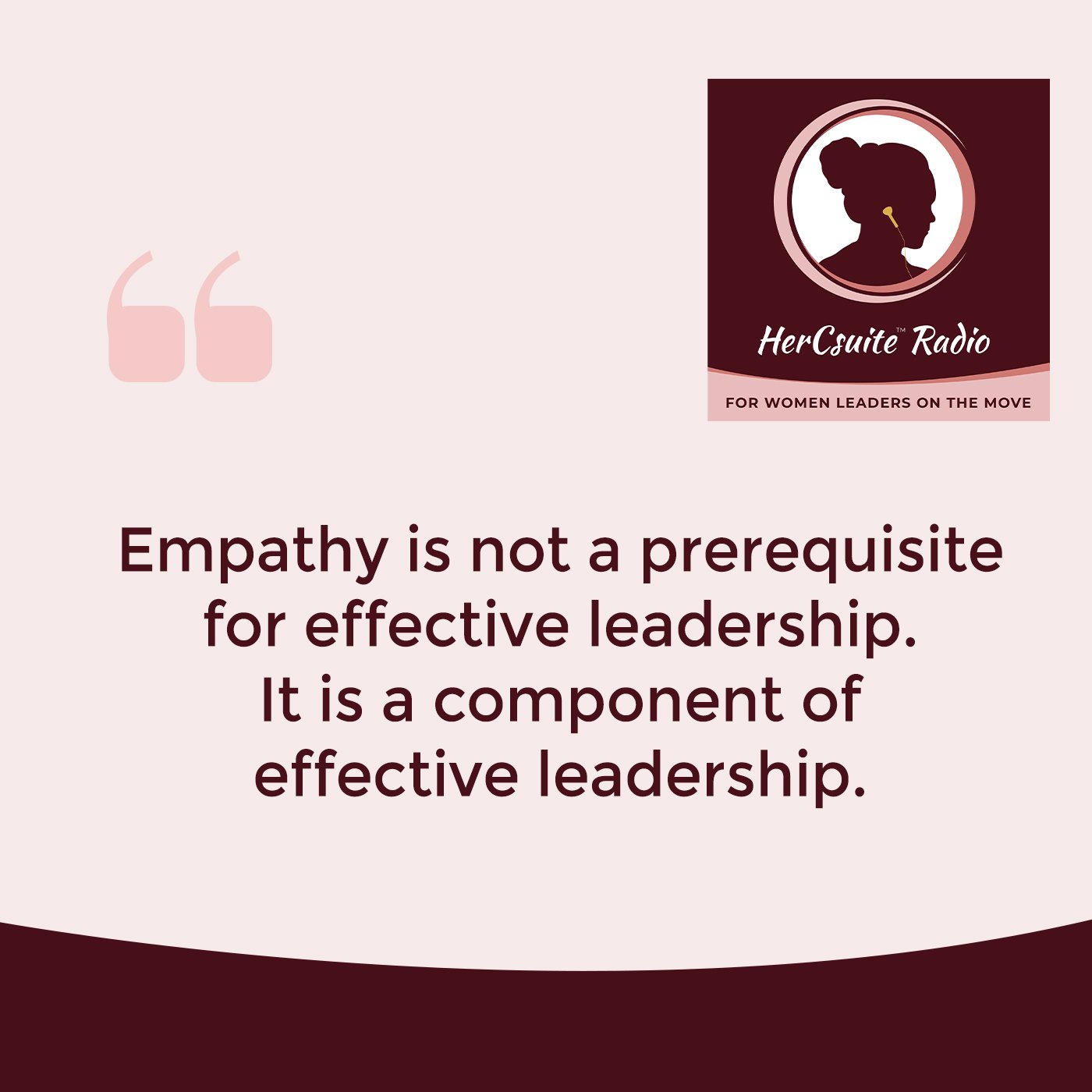


I focus on the three Cs. I don't necessarily use the word empathy as much, although it could be a component of my first C. The three Cs are curiosity, connection, and comfort. My first C stands for curiosity because I believe that leaders must know something about the people that work for them if they're going to lead them effectively.
I like to tell the story of the time that I had this leader. When Mother's Day came around, he bought flowers and had them delivered to some of his employees, and I didn't get any flowers. I heard people talking about it in a Zoom meeting. I said, “What flowers?” They go, “You didn't get any?” I said, “I'm a mother.” He says, “You're a mother? I didn't know you are a mother.” I was new to the organization, a few months before, but he had clearly shown me from the very beginning that he wasn't interested in me as a person. He did not just know that I wasn't a mother. There were so many other things he didn't know. He wasn't curious.
You've got to be curious about your employees in order to build the next thing, which is connection. You can't have a connection without curiosity. Every leader should be somewhat curious. If not, they're not going to connect. It's necessary to do both of those things to get to comfort, which is my third C. What we all want is comfort. Even these conversations about diversity, equity, and inclusion that are so awkward, we wished that we could get past the awkwardness to the comfort where you could look me in the eye, I could look you in the eye, and we do what we have to do. We can see that we don't look like one another, but what does that have to do with anything? We yearn for comfort, but you cannot shortcut comfort without curiosity to get to the connection. That's what all leaders must do to build inclusion.
Once you do the curiosity, you start learning about the person. You did a survey of 500 people and I feel like this is so important because it is not only a diversity question, but it is something that goes to all of us as humans. It’s this desire to feel respected. Can you talk about that and why that's important for changing a little bit in what you were doing in your work in terms of the way you were framing it differently?
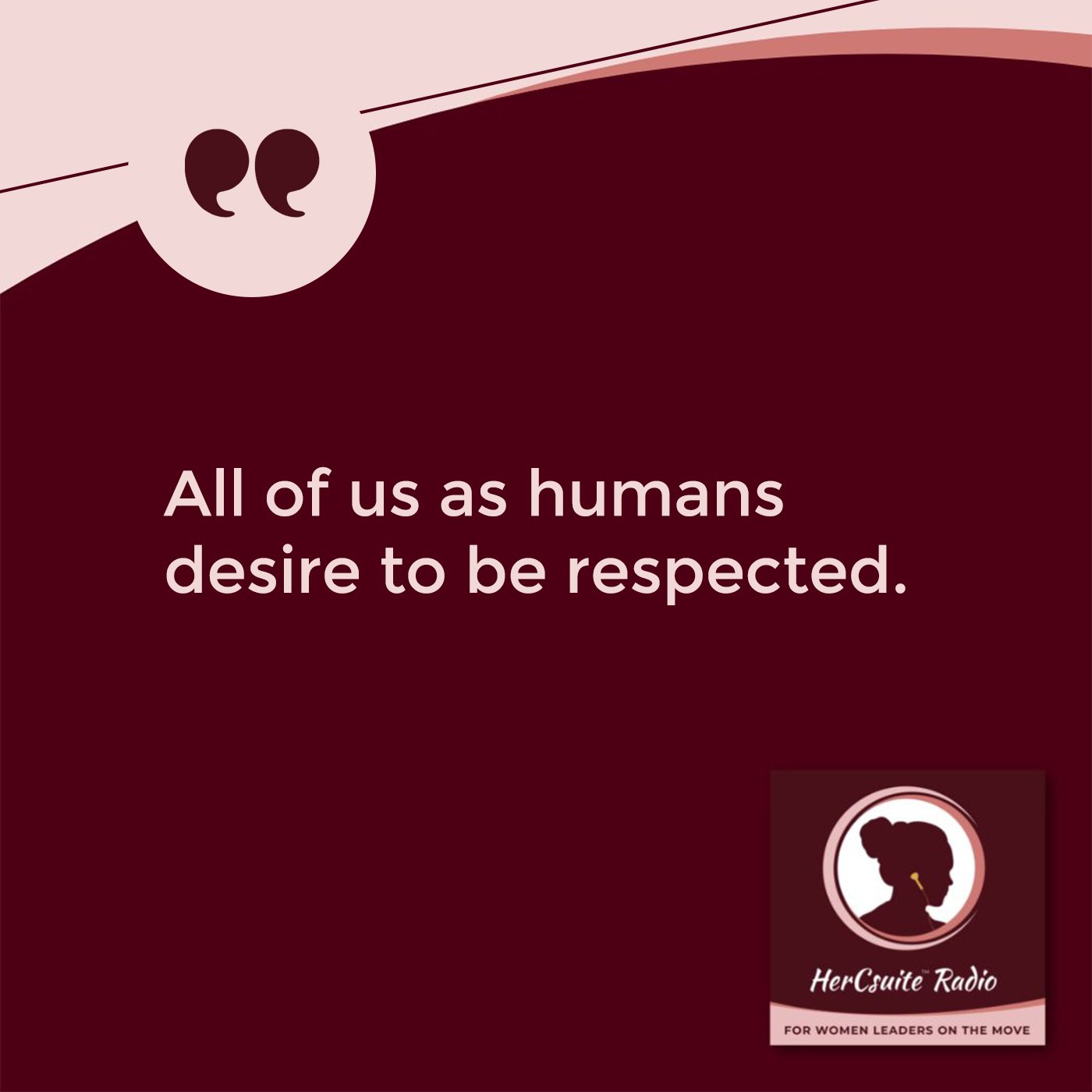


That was an epiphany for me. The epiphany was I was talking to executives about what is it that was getting in the way of them leading the conversation about inclusion in their organizations. They said pretty consistently that number one, “We're not sure it belongs on our plates. We've got diversity and equity professionals to handle it.” Number two, “Our advisors tell us to be careful about this because no matter what we do, we're darned if we do, we're darned if we don't. If we do something, we get criticized if people don't like what we do. If we do nothing, we get criticized for doing nothing. We want to take a low-key below-the-radar approach to everything that we do in this so-called diversity, equity, and inclusion space because it's less risk.”
The third thing they said was, “We're not sure who would be the beneficiaries of this so-called diversity, equity, and inclusion work and what they really want. We don't understand it.” They were admitting that. They were being very honest with me. I then did a survey of 500 working Americans, including 159 Black women. I asked them very similar questions, “What is it that you would like your leaders to know or to do differently?” The theme that kept coming up often in these responses, especially the women of color and other people of color was knowing that leaders were avoiding the issue. They perceived that as not having respect for them.
If I have a problem or a challenge and you are my leader and you don't want to deal with it, that basically means that you don't care about something that is a core to my experience. They interpreted that as disrespect. The word respect kept coming up and that was when I had the epiphany that I'll call my model a respect-first model. I'll put respect at the front. My acronym is REDI which stands for Respect, Equity, Diversity, and Inclusion. It was a way to make it clear that I don't think you're going to get to all of the other outcomes as an organization that you seek on this spectrum unless you're able to at least deliver respect first. It's the precondition for all the other things.
Once you get to that point and you are hopefully evolving the culture, one of the things that you talk about in your book is why it's so important for the leadership, the C-Suite in particular, to be on the right page with this. You were describing a scenario where they're like, “Let's fly under the radar.” We've had many conversations with C-Suite leaders where they're like, “We don't know how we're supposed to respond, whether it was vaccination or all of the things we've had in the last few years.” How should leaders be looking at their executive team at the top as to why that is so pivotal for everything else that's happening? If they're not walking in the water and talking the talk, then it's hard if people start feeling alone.
Since George Floyd was killed, I do think that the conversations have gotten broader, deeper, wider, or whatever about this topic. I do feel like more leaders are interested and more leaders are doing more. It was a curious thing that I noticed. There were two things that organizations tended to do very consistently and still do. One was they would talk about implicit bias training, and the other is they would talk about diversity hiring. The third one was to hire a diversity, equity, and inclusion expert. Those are the three actions.
It was like somebody went around America and said, “Do these three things.” There's nothing wrong with any of those three things. If any of those three things are put in place without a strategic priority, without a strategic vision, and without an articulated why from the top of the house, it means that we end up in a situation like where we are in January 2023.
In Black History Month, there will be a bunch of headlines in Fortune and Bloomberg that’s going say, “We've had a little more progress, but it's been slow. On the anniversary of George Floyd's death, there will be more of those conversations. Why has the progress been insufficient or disappointing? It's because the actions that organization leaders have taken in organizations tend to be ad hoc. They tend to be the flavor of the month.
What is necessary for incremental and sustained change would be to have a strategy about this from the top of the house. That's where all strategies originate. This can't be handled any differently than any other business challenge. It's important for the leaders at the top of the organization to spend a little time to think about why this issue matter for the thing they want to accomplish for this organization, not for moral reasons, but to accomplish their business goal.
What is really necessary for incremental and sustained change would be to have a strategy from the top of the house. That's where all strategies originate. Share on XThe second thing would be to say, “What would we need to have it happen? What is desired outcome 12 months or 24 months from now? In order for us to get to that desired outcome, what would need to happen?” Figure that out at a very high level and say to those who they're asking to do it, “This is what we want from you.” Furthermore, to articulate to the full employee population, “This is one of the things that we're working on. Here's why we're doing it.” Be open and transparent about it.
I will give an additional piece of advice. You're not going to get this right the first time. It's not going to be perfect. The progress is not going to be upward and to the right consistently every period that you measure. You're going to have disappointments. You set this up as a work in process. It's more than an experiment. It is something where you are going to make incremental progress and learn from your mistake. If you have to take a step back, then you'll know what the next step should be. Think of it as something you're determined to get to this destination. You're going to ride the wave and do whatever it takes to get there. Instead, most organizations set this up in a way that’s either fail or not fail, and that is ridiculous.
It's so good. It's always hard to end conversations like this. I got the chance to talk to you longer than probably most people have the unbelievable opportunity to do. For our audience, where can they go to find you, your book, and all other things? Where should they go?
Thank you. To find my book, Amazon or any of the other booksellers is the easiest place. The book is called Leading Inclusion. If you want to learn more about me, you can go to my website, GenaCox.com. At the top of that page, there's also a tab about the book, so you can learn more about the book at my website. You can also find me on LinkedIn. I love having conversations on LinkedIn. If you ever reach out to me on LinkedIn with regard to something I post or with a message, you'll always get a response. I'm an advisor and an executive coach to leaders who want to build inclusive organizations. I'm also a speaker. If you're interested in having me speak at one of your events or have a conversation with a smaller group, those are the things I love to do.
I'm so grateful to you for the two conversations that we've had and for having you be a featured speaker, a member of Her C-Suite and DEI Council, and so many things. Thank you for being here with me. This has been absolutely wonderful.
Thank you for thinking about me, reaching out to me, and making the invitation. I had a wonderful time with you. I look forward to having more of these conversations.
Important Links
- Dr. Gena Cox
- DEI Cross Organization Program
- Leading Inclusion
- Leading Inclusion – Amazon
- Workplace Inclusion – Making workplaces better. Another of MLK's Dreams.
- LinkedIn – Gena Cox
About Gena Cox



Natalie Benamou
Founder, CEO
HerPower2, Inc, | CGO HerCsuite™ | Podcast Host HerCsuite™
Natalie founded Herpower2, inc. to create products under HerCsuite™ to empower women to make a lasting impact today and into the future. She takes a ‘serve first’ approach to life and has applied this principle throughout her career, serving in leadership positions in business as well as non-profit organizations.
Share this story:
HerCsuite® is an official product of HerPower2 Inc. | all rights reserved – Privacy Policy – Terms & Conditions

